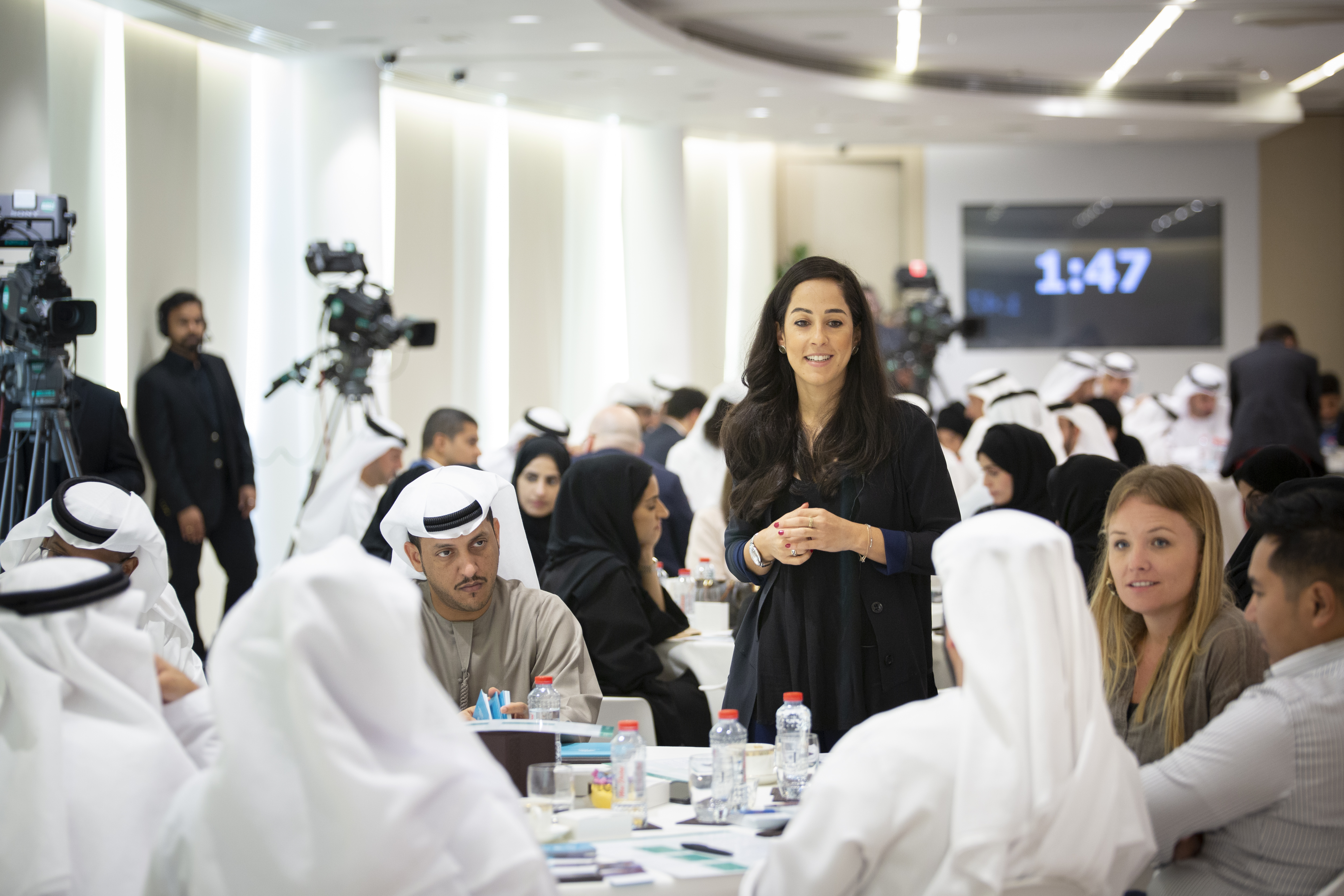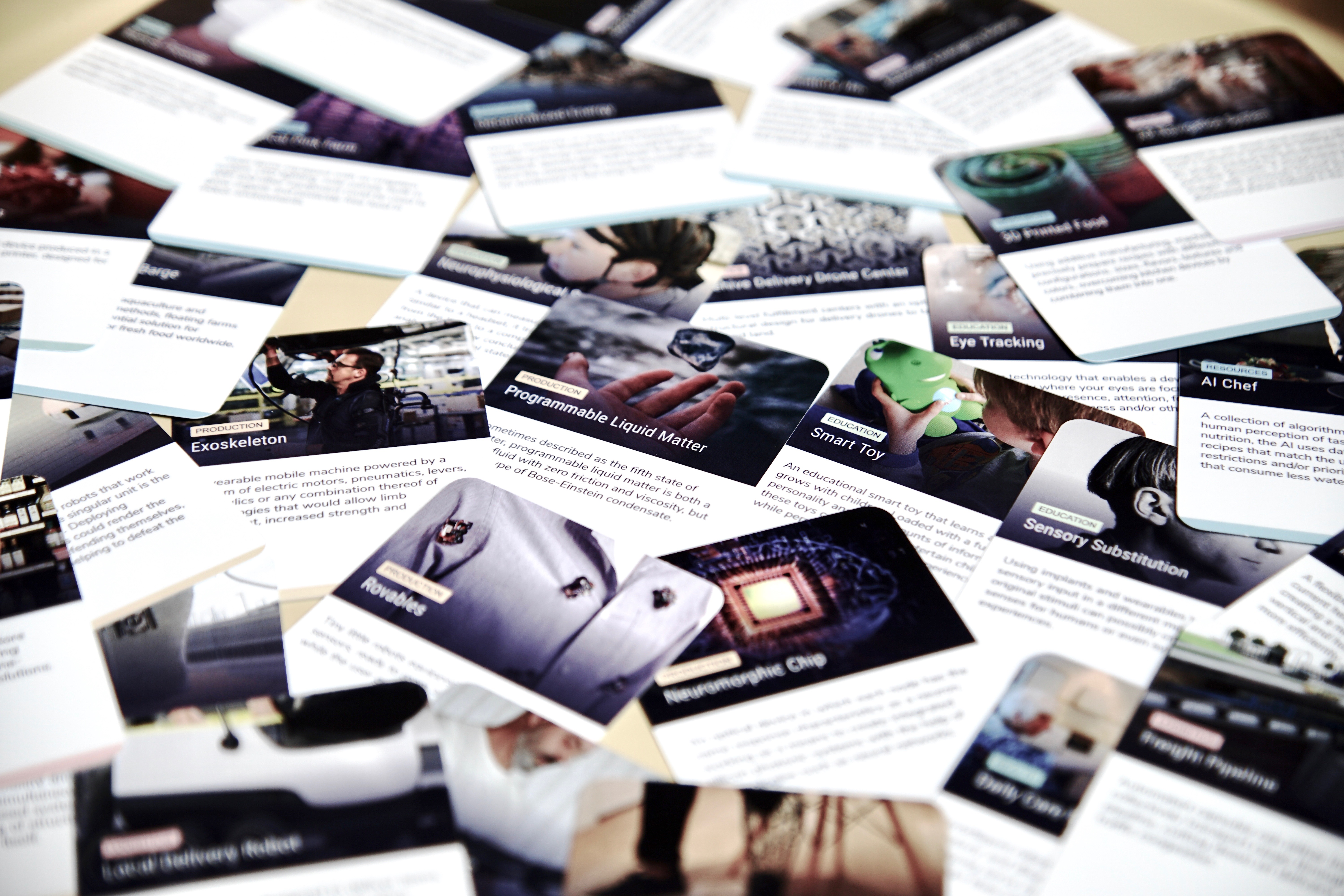Futures Literacy at the World Governments Summit

The WGS - World Governments Summit convenes annually in Dubai, bringing together global and regional leaders from government, academia, and the private sector to discuss key topics, including futurism, technology innovation, and other pressing issues.
As a key partner of the UAE PMO (Prime Minister's Office), we contributed by training public officials and showcasing cutting-edge research on emerging technologies. As part of this Futures Literacy effort, we developed and presented multiple radars at masterclasses for over 400 government officials. These masterclasses, offered during WGS’s knowledge programs, provided in-depth sessions on emerging technologies, their implications, and future possibilities. Through interactive, hands-on workshops, we guided participants in envisioning how these technologies could shape policy and governance in the years ahead.
Our Work
- Conducted surveys to assess the regional relevance and readiness of emerging technologies.
- Explored key themes such as Agriculture, AI Applications, Digital Citizenship, and more.
- Provided a 360º horizon scan across essential sectors, including education, production, health, mobility, and logistics.
Impact
- Conducted workshops and masterclasses for over 400 public officials and private sector participants in Dubai and the UAE.
- Delivered futures literacy training, enabling participants to understand the potential impact of emerging technologies on governance and policy.
- Developed localized technology radars with Arabic translation and touchscreen interface, for local and global reach.
We delivered comprehensive research across multiple areas of emerging technology, tailored to different audiences at WGS. We created over five distinct radar installations, each focusing on themes such as Agriculture & Geoengineering, AI Applications, and Digital Citizenship. A broader radar provided a 360º horizon scan covering key sectors like education, production, health, mobility, and logistics. These radars enabled participants to gain a holistic view of how emerging technologies could impact various aspects of the economy and society.
For over 60 technologies, we implemented a live data collection process during workshops, engaging more than 40 participants—mostly government officials. Attendees scored technologies on two primary metrics: viability (how prepared the region is and how likely it is to adopt the technology) and impact (the importance of the technology in shaping the future). These scores were visualized in a heatmap, offering clear insights into where to focus investment and policy efforts. This real-time data collection provided actionable insights for integrating technology into future governance strategies.
We conducted multiple workshops with public officials, utility companies, public authorities, and external participants. These sessions trained participants in futures literacy, guiding them on how to anticipate and plan for the effects of emerging technologies over time. The workshops featured hands-on exercises, creative ideation sessions, and pitching unique technology-driven ideas. Participants were introduced to our methodology through the use of technology cards and radar visualizations, helping them understand how emerging technologies could influence their specific sectors.

To ensure that radar content reached a broad local audience, all materials were translated into Arabic, which required important UX adaptations for right-to-left text. This localization ensured that participants could easily navigate and engage with the radar in their native language, facilitating greater accessibility and understanding for Arabic-speaking officials.
Produced learning material like cards and canvases, as well as interactive touchscreen displays and data collection stations at the yearly WGS conference in Dubai.
